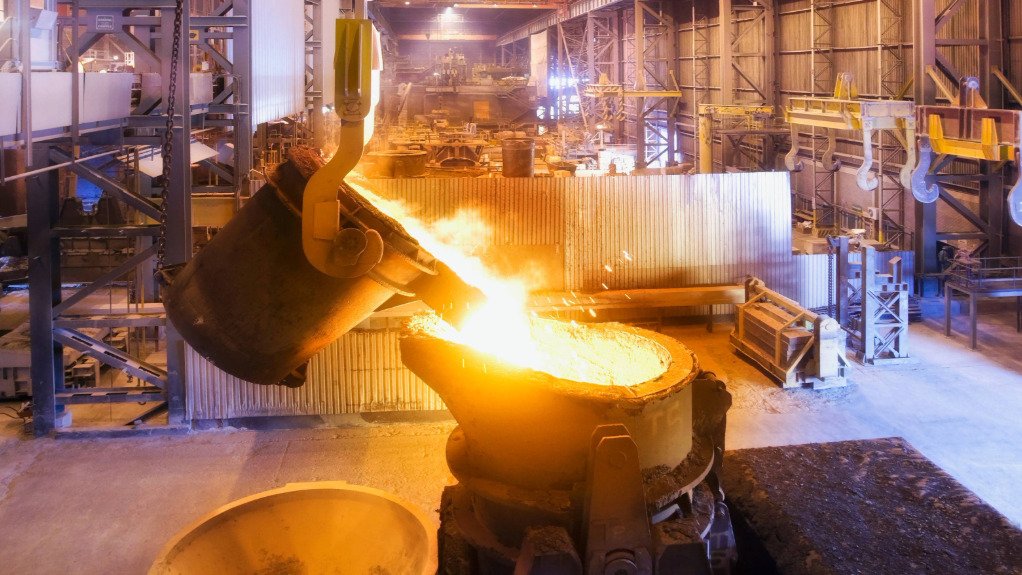Metros’ job growth lacklustre; Gauteng shedding manufacturing jobs – report
South Africa’s eight metros – Cape Town, Tshwane, Johannesburg, Buffalo City, Nelson Mandela Bay, Ekurhuleni, Mangaung and eThekwini – have seen a lacklustre employment trajectory over the last decade, says a research report published in the Development Southern Africa journal.
The report also shows that none of the eight metros experienced appreciable employment growth in the manufacturing sector.
In fact, the three Gauteng metros all lost manufacturing jobs.
The report, titled ‘Striking disparities in employment across South Africa: Evidence from a new spatial database’, was written by the University of the Free State’s Professor Ivan Turok, and the Human Sciences Research Council’s Justin Visagie.
The evidence for the report comes from a new spatial database about local economies based on the mining of administrative tax records (www.spatialtaxdata.org.za).
The report notes that there has been much speculation about the contrasting fortunes of South Africa’s metros, especially that of a ‘booming’ Cape Town attracting so-called semigrants from the rest of the country, versus a ‘collapsing’ Johannesburg.
“While there is some substance to these assertions, there is also a danger of oversimplification and exaggeration,” warns the report.
The authors note that formal employment in the top performing job-creating metro – Cape Town – increased “by only 20%” between 2014 and 2023.
“This is less than 2% per annum (compound growth) and similar to the city’s population growth rate.”
In contrast to this, employment in the poorest performing city – Nelson Mandela Bay, home to many automotive-related plants, for example – declined by 5% over the same period.
Johannesburg has been the second worst performer.
The Covid pandemic has also proved to be a serious setback everywhere, and only two metros have subsequently recovered to their 2020 employment levels.
Well-publicised political instability, mismanagement and dysfunction in key metro municipalities have been major problems, note the report’s authors.
Growth-Spinning Jobs, or Merely Catering for a Growing Population?
Turok and Visagie note that the most consistent source of employment growth across the metros has been non-tradable services, such as construction and retail, which stems from either government or local demand.
“Neither of these broad groups of activity can be considered sources of dynamism that might help to propel economic growth.
“They are more likely to reflect the needs of the expanding urban population for more consumer services, schools, healthcare and so on.”
However, another, healthier source of employment growth has been tradable services, such as banking, IT and logistics.
Growth in this category has been less widespread than other services, and more focused on Cape Town, followed by modest growth in Johannesburg, Tshwane and eThekwini.
“Tradable services are more likely than non-tradables to spur generalised growth,” notes the report.
“Tradable goods and services are more likely to influence the economic trajectory of a region because they can access wider markets and outgrow the local population, if the firms that produce them are sufficiently competitive.
“Hence, tradables are often considered to be the economic/export base or propulsive sectors.”
In contrast to this, non-tradables are essentially dependent on local demand and, therefore, limited in their growth potential.
Good examples are consumer and personal services, such as retail outlets, hairdressers, garages and petrol stations, bars and restaurants.
In light of this, Cape Town’s recent employment growth has indeed been more robust and resilient than the other metros, as well as somewhat faster, states the report.
When looked at in more detail, the biggest sources of employment growth in Cape Town have been retail and wholesale services, followed by administrative activities (call centres, labour brokers and security), finance and insurance.
The main sources of job growth in Johannesburg have been public administration and education, followed by retail and wholesale services, and hospitality.
Johannesburg has lost most of its jobs in construction and a broad category of ‘other services’.
Employment growth in Tshwane has mirrored the pattern in Johannesburg, but it has lost most of its jobs in manufacturing and logistics.
Ekurhuleni has lost most of its jobs in manufacturing and construction.
eThekwini has created most of its jobs in retail and wholesale activities.
“This general shift from tradables to non-tradables suggests that these local economies are not evolving in ways that raise productivity, imply technical progress or reflect positive structural transformation,” warns the report.
“It is difficult to imagine the national economy prospering as long as its main cities struggle and stagnate.
“Some of the reasons for their poor performance have been well documented, with cities being at the sharp end of serious energy and water crises, transport and logistics failures, other forms of infrastructure decay and collapse, accompanied by instability and mismanagement in local government.”
Turok and Visagie note that the deteriorating governance of the metros deserves special attention from national government, because of their vital contribution to the country’s economy.
Article Enquiry
Email Article
Save Article
Feedback
To advertise email advertising@creamermedia.co.za or click here
Press Office
Announcements
What's On
Subscribe to improve your user experience...
Option 1 (equivalent of R125 a month):
Receive a weekly copy of Creamer Media's Engineering News & Mining Weekly magazine
(print copy for those in South Africa and e-magazine for those outside of South Africa)
Receive daily email newsletters
Access to full search results
Access archive of magazine back copies
Access to Projects in Progress
Access to ONE Research Report of your choice in PDF format
Option 2 (equivalent of R375 a month):
All benefits from Option 1
PLUS
Access to Creamer Media's Research Channel Africa for ALL Research Reports, in PDF format, on various industrial and mining sectors
including Electricity; Water; Energy Transition; Hydrogen; Roads, Rail and Ports; Coal; Gold; Platinum; Battery Metals; etc.
Already a subscriber?
Forgotten your password?
Receive weekly copy of Creamer Media's Engineering News & Mining Weekly magazine (print copy for those in South Africa and e-magazine for those outside of South Africa)
➕
Recieve daily email newsletters
➕
Access to full search results
➕
Access archive of magazine back copies
➕
Access to Projects in Progress
➕
Access to ONE Research Report of your choice in PDF format
RESEARCH CHANNEL AFRICA
R4500 (equivalent of R375 a month)
SUBSCRIBEAll benefits from Option 1
➕
Access to Creamer Media's Research Channel Africa for ALL Research Reports on various industrial and mining sectors, in PDF format, including on:
Electricity
➕
Water
➕
Energy Transition
➕
Hydrogen
➕
Roads, Rail and Ports
➕
Coal
➕
Gold
➕
Platinum
➕
Battery Metals
➕
etc.
Receive all benefits from Option 1 or Option 2 delivered to numerous people at your company
➕
Multiple User names and Passwords for simultaneous log-ins
➕
Intranet integration access to all in your organisation




















